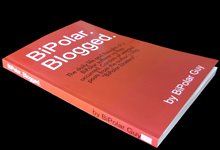UNlearning stuff
I'm seeing more and more that to practise Buddhist Philosophy is more about unlearning stuff than learning stuff.
Certainly that's the case for me, a Westerner living in the consumerist, competitive, techno-accelerated 21st century. It's like we've been programmed wrong from the start. Programmed to continually fail and suffer. The big step is to realise this. I think a lot of people are unsatisfied with the way the world is at present, and with their own lives, but they don't realise that the problems start in their own minds. Instead they seek stuff in the outside world - a new car, a new outfit, more money, alcohol, new sex - ALL of it doomed.
Once you've realised that it's the internal programming that's wrong the bulk of the remaining work is unlearning stuff, particularly thinking patterns. For me, Buddhist philosophy offers a new programme that is more workable. But before installing the new software, you gotta un-install the old.
NOT EASY. It's like a golf player that has been self-taught himself and by the time he's serious about his golf and wants to improve, he finds it is very difficult to go up to the next level because years and years of bad swinging is ingrained. Ask any Golf Instructor - if you wanna take up golf - Get Lessons First!
Maybe that's why in the East, Buddhist monks start off so young. It's a phenomenon I've always been skeptical about, like its almost a form of indoctrination, but I can see now that the Path is so much more accessible to them because the bad programme has not been too deeply entrenched yet.
And besides, we are NEVER born into an "indoctrination" free world. From day one, we are born into the confines of our own society's man-made language. And our whole youth we are bombarded with advertising designed to make us think in a certain way. And everybody else around us (most of all the adults) are totally indoctrinated into the system, even though they are ignaorant of that fact.
The biggest thing that I personally gotta unlearn is RUSH, RUSH, RUSH. I've spoken about this before, but it's such a major underlying factor in my life that I'll no doubt be speaking about it again may times hence.
Now that I'm more mindful of how much I rush, it is terrifying how it permeates every corner of my life. Often it is not blatantly obvious - I mean I certainly don't move about my daily life at high speed (ESPECIALLY in depressed mode). But the rush psychology works in more subtle underlying ways. Like always looking for short cuts. Like not doing things properly because deep down I'm paraoid that there is just not enough time to squash my life into, and even that time is running out, tick by tick. Even in the pleasurable things. I've seen it in my photography, I saw it in the first book I wrote, it even permeates sex.
And I suppose that is what meditation is about for me. It's like a reprieve in the Rush-Flow, a little oasis of calm amidst the 21st century storm. And sure, it might look like I'm doing NOTHING, but in fact, for every second that I meditate I am acheiving something critically important. I am de-programming my faulty thinking....




I'd say that the problem is that we're programmed to believe that we can escape failure and suffering. And when we fail and suffer, we suffer even more.
ReplyDeletebegin by unlearning buddhism!
ReplyDeletethen watch more rainbows, take more time smelling your own [loud] farts and practice tantra so you don't cum too fast.
ReplyDeleteThis is an excellent post, because the rush of nothing and the crunch of emptiness permeates Western life. I believe too many of us cannot differentiate our selves from our assumptions. Do we exist if we take away status, wealth, ego, ideology, sexual proof of being, and so much more? I admire the Dalai Lama and some Westerns and some of these and those who can recognize the valuable from the imaginary. For myself, I learn most by witnessing and emulating those who find a world in balance amidst a world out of balance.
ReplyDelete